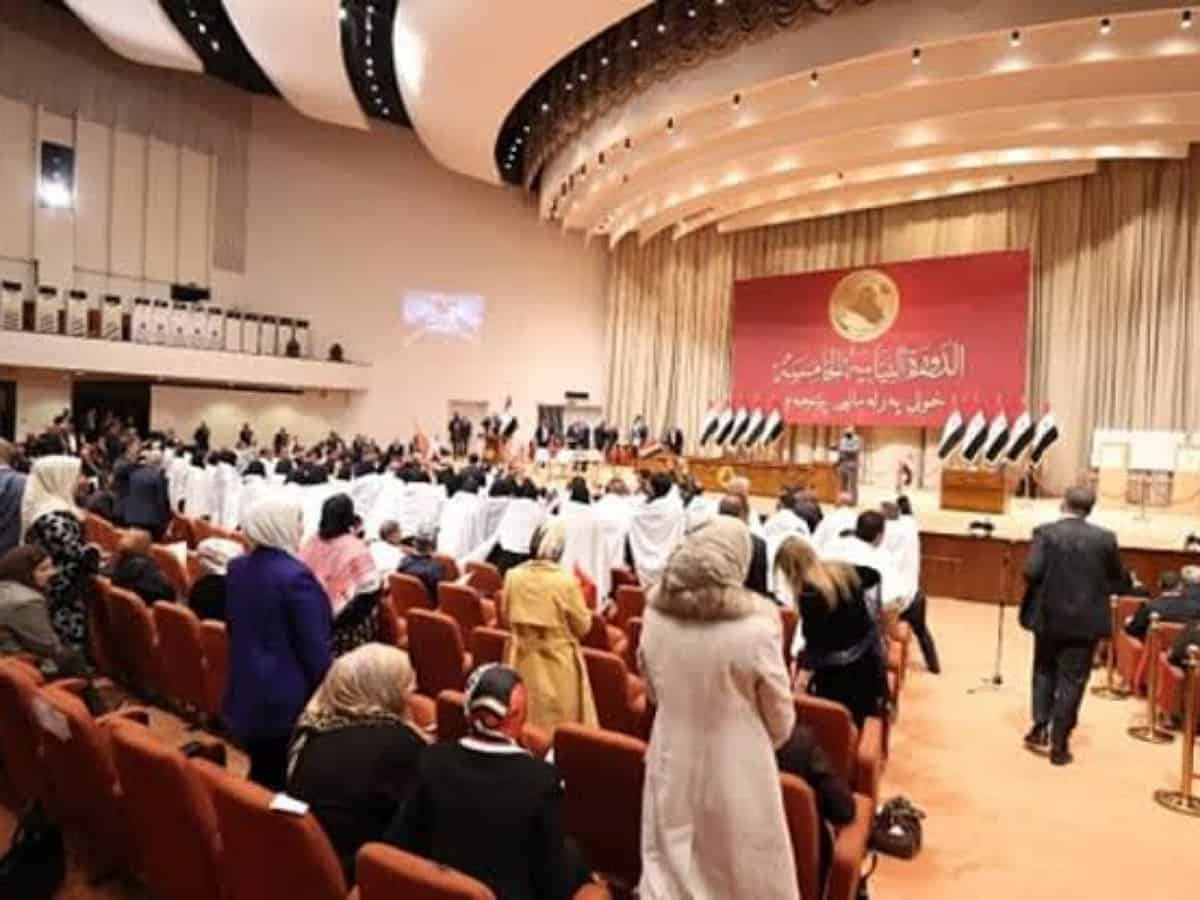
Baghdad: A Kurdish political party and a Sunni political alliance have decided to boycott the Parliament session slated for Monday to elect a new President for the country, threatening to postpone the session.
“To complete the ongoing consultations and dialogues between the political blocs, we decided not to attend the session of the Council of Representatives (Parliament) for Monday,” the Kurdistan Democratic Party (KDP), headed by the Kurdish leader Masoud Barzani, who won 33 seats in the October 10 elections, said in a statement.
A Sunni political group, named al-Siyada Alliance, headed by businessman Khamis al-Khanjar, said in a separate statement that they have decided not to participate in the Council of Representatives session to support dialogue among political parties.
On February 5, the Sadrist Movement, loyal to Shiite cleric Moqtada al-Sadr, which won 73 seats out of 329 seats, also decided to boycott Monday’s Parliament session, Xinhua news agency reported.
The boycott from the three political groups for the Parliament session threatens to postpone the session until further notice.The boycott from the three political groups for the Parliament session threatens to postpone the session until further notice.
The boycott also came after the Iraqi Federal Supreme Court decided to suspend the KDP’s nomination of Hoshyar Zebari for the presidency until a corruption lawsuit against him is resolved.
On January 31, the Iraqi Parliament announced the names of 25 candidates for the presidential election scheduled for February 7, including incumbent President Barham Salih, who represents the Patriotic Union of Kurdistan, former Foreign Minister and Finance Minister Zebari from the KDP, and Rizgar Mohammed Amin, former Chief Judge of the Iraqi Special Tribunal that organised the trial of former Iraqi leader Saddam Hussein.
According to the Iraqi constitution, lawmakers should elect a new Iraqi President from the candidates by a two-thirds majority of its members, and the President will be limited to serving two four-year terms.
Once elected, the new President will ask the largest parliamentary alliance to name a Prime Minister-designate to form a government within 30 days.
On October 10, 2021, Iraq held the fifth parliamentary election, where Shiite Muslim cleric Moqtada al-Sadr’s Sadrist Movement emerged as the biggest winner with 73 out of the 329 seats.

